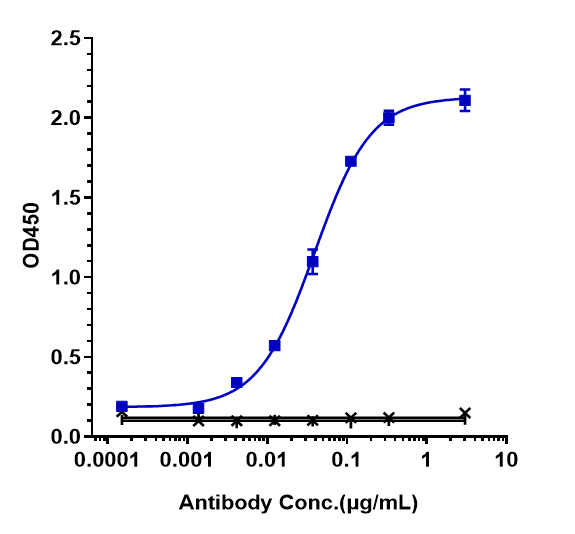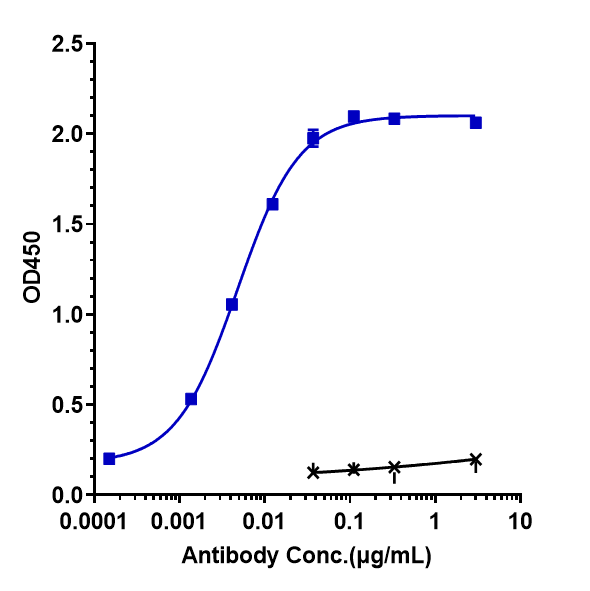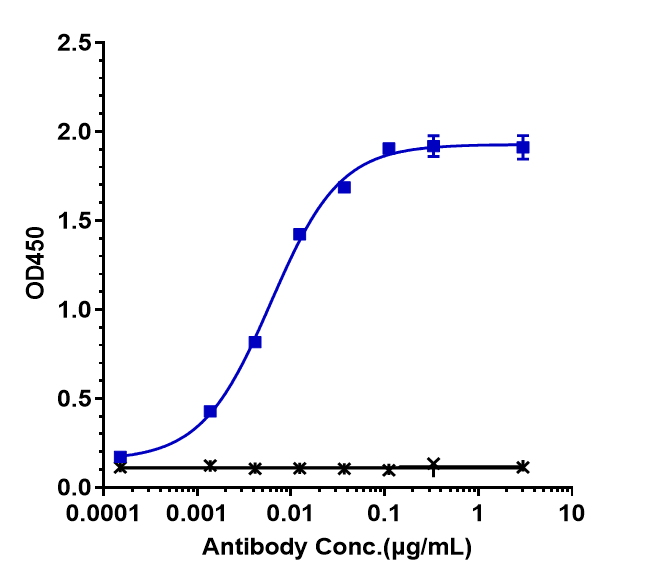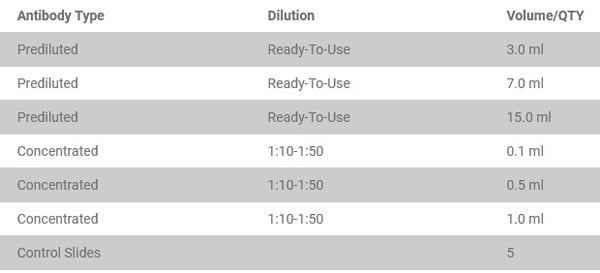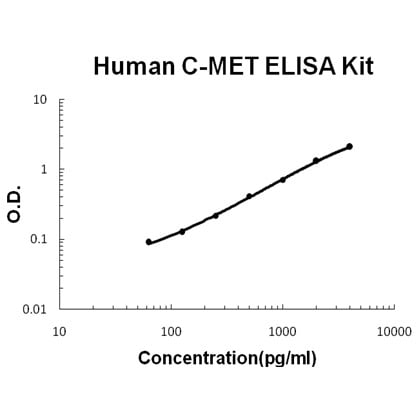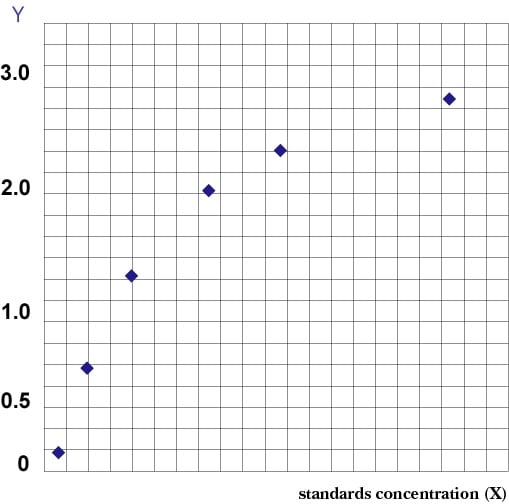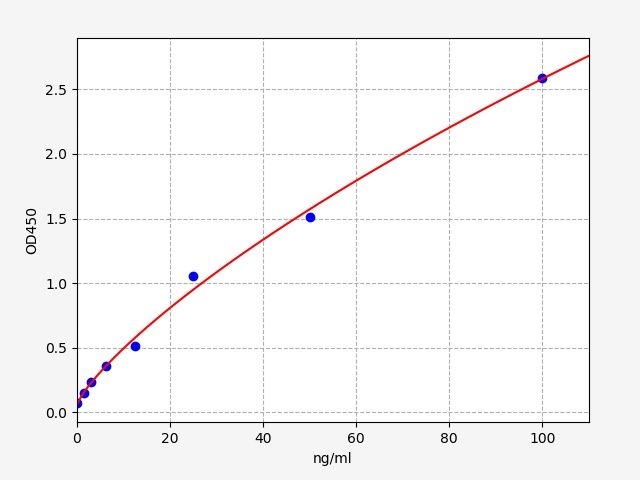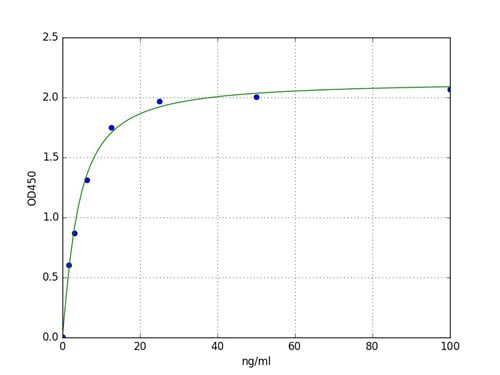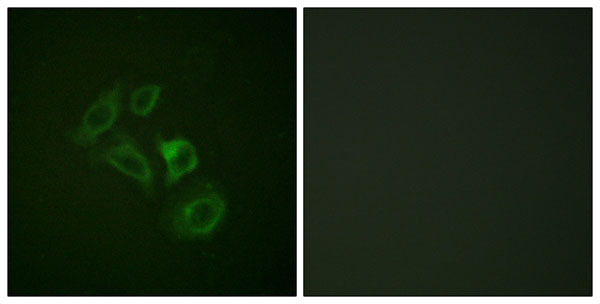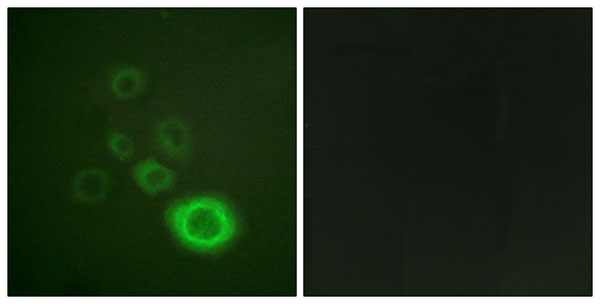c-MET / HGFR recombinant protein
Recombinant Mouse c-MET / HGFR Protein (His tag)
Gene Names
Met; HGF; HGFR; Par4; c-Met; AI838057
Purity
> 90 % as determined by reducing SDS-PAGE
Synonyms
c-MET / HGFR; N/A; Recombinant Mouse c-MET / HGFR Protein (His tag); AI838057;c-Met;HGF;HGFR;Par4; c-MET / HGFR recombinant protein
Host
HEK293 Cells
Purity/Purification
> 90 % as determined by reducing SDS-PAGE
Form/Format
Lyophilized from sterile PBS, pH 7.4, 5% Trehalose, 5% Mannitol, 0.01% Tween-80.
Sequence
Met 1-Asn 929
Sequence Length
1379
Tag
C-His
Species
Mouse
Endotoxin
< 1.0 EU per ug of the protein as determined by the LAL method
Bioactivity
Immobilized HGF Protein, Mouse, Recombinant at 2 ug/mL (100 uL/well) can bind c-MET Protein, Mouse, Recombinant (ECD, His Tag, the EC50 is 80-400 ng/mL.
Reconstitution
We recommend that the vial be centrifuged to opening to bring the contents to the bottom. Do not mix by vortex.
It is recommended that sterile water be added to the vial to prepare a stock solution of 0.25 mg/mL. Concentration is measured by UV-Vis.
It is recommended that sterile water be added to the vial to prepare a stock solution of 0.25 mg/mL. Concentration is measured by UV-Vis.
Preparation and Storage
Generally, lyophilized proteins are stable for up to 12 months when stored at -20 degrees C to -80 degrees C . Reconstituted protein solution can be stored at 4-8 degrees C for 2-7 days. Aliquots of reconstituted samples are stable at < -20 degrees C for 3 months.
Related Product Information for c-MET / HGFR recombinant protein
Background: Hepatocyte growth factor receptor (HGFR), also known as c-Met or mesenchymal-epithelial transition factor (MET), is a receptor tyrosine kinase (RTK) that has been shown to be overexpressed and/or mutated in a variety of malignancies. HGFR protein is produced as a single-chain precursor, and HGF is the only known ligand. Normal HGF/HGFR signaling is essential for embryonic development, tissue repair or wound healing, whereas aberrantly active HGFR has been strongly implicated in tumorigenesis, particularly in the development of invasive and metastatic phenotype s. HGFR protein is a multifaceted regulator of growth, motility, and invasion, and is normally expressed by cells of epithelial origin. Preclinical studies suggest that targeting aberrant HGFR signaling could be an attractive therapy in cancer.
NCBI and Uniprot Product Information
NCBI GI #
NCBI GeneID
NCBI Accession #
NCBI GenBank Nucleotide #
Molecular Weight
Calculated molecular weight 102 kDa
Observed molecular weight 41.8&87.2 kDa
Observed molecular weight 41.8&87.2 kDa
NCBI Official Full Name
hepatocyte growth factor receptor
NCBI Official Synonym Full Names
met proto-oncogene
NCBI Official Symbol
Met
NCBI Official Synonym Symbols
HGF; HGFR; Par4; c-Met; AI838057
NCBI Protein Information
hepatocyte growth factor receptor
UniProt Protein Name
Hepatocyte growth factor receptor
UniProt Gene Name
Met
UniProt Synonym Gene Names
HGF receptor; SF receptor
Customer Reviews
Loading reviews...
Share Your Experience
Similar Products
Product Notes
The c-MET / HGFR met (Catalog #AAA22100) is a Recombinant Protein produced from HEK293 Cells and is intended for research purposes only. The product is available for immediate purchase. The amino acid sequence is listed below: Met 1-Asn 929. It is sometimes possible for the material contained within the vial of "c-MET / HGFR, Recombinant Protein" to become dispersed throughout the inside of the vial, particularly around the seal of said vial, during shipment and storage. We always suggest centrifuging these vials to consolidate all of the liquid away from the lid and to the bottom of the vial prior to opening. Please be advised that certain products may require dry ice for shipping and that, if this is the case, an additional dry ice fee may also be required.Precautions
All products in the AAA Biotech catalog are strictly for research-use only, and are absolutely not suitable for use in any sort of medical, therapeutic, prophylactic, in-vivo, or diagnostic capacity. By purchasing a product from AAA Biotech, you are explicitly certifying that said products will be properly tested and used in line with industry standard. AAA Biotech and its authorized distribution partners reserve the right to refuse to fulfill any order if we have any indication that a purchaser may be intending to use a product outside of our accepted criteria.Disclaimer
Though we do strive to guarantee the information represented in this datasheet, AAA Biotech cannot be held responsible for any oversights or imprecisions. AAA Biotech reserves the right to adjust any aspect of this datasheet at any time and without notice. It is the responsibility of the customer to inform AAA Biotech of any product performance issues observed or experienced within 30 days of receipt of said product. To see additional details on this or any of our other policies, please see our Terms & Conditions page.Item has been added to Shopping Cart
If you are ready to order, navigate to Shopping Cart and get ready to checkout.





